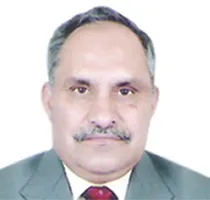In context of India's foreign policy initiatives in the last three months, Charles Dickens' famous quote "It's the best of times, it's the worst of times" seems apt. After what appears to have been an extremely productive trip to the United Nations and the United States, and earlier to Japan, Prime Minister Narendra Modi is now confronted with the hard reality of dealing with an intransigent Pakistan that appears to have lost its way. Pakistan's dilemma of wanting to get Kashmir back to the center- stage after having first miscalculated the impact of its talking to separatist leaders that led to the cancellation of talks at the Secretary level, and then finding itself outmanoeuvred and increasingly isolated on the question of Jammu & Kashmir by Mr Modi at the UN, is easily understood.
However, its present actions of ratcheting up tensions not only on the Line of Control but also along the International Border, while obviously making an attempt to regain the initiative, is actually unlikely to pay any dividend for a number of reasons.
First, Pakistan is already at the brink of an abyss, with its ability to prevent its present headlong rush towards extremism and separatism and return on a track that would lead to a more substantive and constructive relationship with the world at large and specifically India, seeming increasingly unlikely. The issue of the US withdrawing from Afghanistan, the establishment of the Al Qaeda in the Indian sub-continent and the rise of the Islamic State only complicates the matter. Second, in the context of Jammu & Kashmir, there appears to be a consensus emerging that the historical context is of little importance, since what is done cannot be undone and we need to look ahead towards meeting the aspirations of future generations. Finally, it should be clear to the Pakistani leadership that Mr Modi would not be willing to deal with a gun to his head. Recent events have clearly demonstrated the manner in which the Indian Prime Minister responded to such attempts being made within his own party.
Most importantly, however, Pakistan's actions make little sense militarily. In any conventional face-off, the Pakistan Army will find itself at a disadvantage, as Kargil and the wars before clearly showed. In fact, this was the very reason it placed complete reliance on waging a low-intensity conflict using terrorists to carry out disruptive activities within Kashmir. The overall ratios of force levels have not changed in any way and in fact may have even deteriorated further to Pakistan's disadvantage. Moreover, even in its conduct of the low-intensity conflict, the last couple of years have only seen a rapid decrease in the ability of terrorists to carry out any substantial strikes. Therefore, the only logical explanation for the Pakistan Army's present course of action appears to hinge on the belief that Indian forces will not escalate the situation keeping in view Pakistan's nuclear capability. Islamabad hopes to not only bring Kashmir back on the centre-stage in world opinion but also reinvigorate the militant movement.
As we can already see, this course is not working because not only is the world's attention diverted in dealing with the threat that the Islamic State poses, but more importantly, the India's security establishment is also responding in a far more robust and aggressive manner than earlier with little circumspection about likely escalation. In any case, as the Indian Army starts to target hostile mortar and heavy weapons positions, the consequent casualties, both civilian and military, will have a salutary effect on the political leadership in Pakistan and may lead to a cessation of hostilities, if not a return to the status quo.
That both nations need to talk is undeniable, as leaders on both sides owe it to their people to give them something more substantive than cyclical violence. But talks cannot be brought about through the barrel of guns.
(The writer is a consultant with Observer Research Foundation)Courtesy: The Pioneer, October 10, 2014
The views expressed above belong to the author(s). ORF research and analyses now available on Telegram! Click here to access our curated content — blogs, longforms and interviews.

